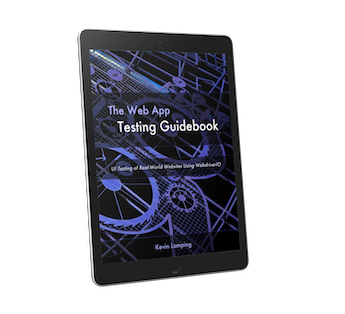Crossing the Political Divide
However much some of us may dislike Trump, we're damn lucky the shooter missed. Trump has power in politics because there are a lot of angry, scared, and ultimately unheard voices out there. Trump represents a societal illness. Not an illness for one political side or the other, but rather, a breakdown in our society's ability to tackle the harsh realities of the world. You can take him out, but the illness remains.
A healthy culture is able to take complex topics such as abortion, where one side believes you're killing innocent life, and the other believes you're controlling women's bodies, and be compassionate towards the concerns of all. It knows it can't solve one side's issue without harming the other side. It seeks solutions that mitigate the pain for all, versus just offloading the pain onto someone else.
Ban abortion entirely, and you certainly doom a significant number of women and children to life-long poverty. Promote abortion entirely, and you tell people that fetuses are not human. Maybe you hold this view, but they don't. They truly believe you're killing innocent life, and now you've told them that doesn't matter. That would rightfully cause significant distress in someone. Either way, someone suffers.
Life, and the choices we're required to make, can be quite painful.
An unhealthy society is unable to bridge the divide, and the anger and hatred festers, until political leaders like Trump arise and gain power. They then enforce opinions on hard issues through political willpower, instead of compromise. These leaders are chosen to strong-arm answers through political force. If they fail at that, then it moves to violent force (e.g., Jan 6).
Right now, Trump represents strong-arming answers through political force. Him surviving this has given us more time until that turns into violent force. More time to get back to a healthier society, healthier debates and more compassionate disagreements. I may never agree with certain opinions, but I can have compassion for your viewpoint, and understand why you believe what you believe (even though you're entirely wrong :wink:)
If you find yourself thinking, "I'll never compromise women's rights" or "I'm never going to be okay with murdering babies," then realize this is a reflection of this breakdown. We're defensive and unwilling to compromise, because we see no compromise available. We don't see or hear the other side's points. We strawman their view, and turn them into the enemy.
Compromise does not mean giving up your beliefs. It doesn't mean sacrificing that which you hold dear, or going against your values. It does mean facing the harsh challenges this existence throws at us, with compassion and an understanding that sometimes the best choice is still a tragic one. Compromise seeks to reduce pain as much as possible, but knows it can't avoid it all together. It knows that there are no hard and fast rules to life. That it all comes at some sort of cost, and the best you can do is make that cost worth it.
Ending Trump would not end the anger and the illness. It would only take away whatever bit of functioning form this illness is able to take through him. Ending him would transform this anger from a political force, into a violent force.
This does not excuse Trump from being able to hold power. I despise that he's one of our two primary options. I'm not okay with him being president again; I wasn't the first time either. But I fully believe that the way to remove him from power is through figuring out how we can build a healthier culture.
How can we learn to functionally disagree? How can we be entirely against a viewpoint, but also be entirely for the person with that viewpoint? It doesn't mean I'm going to stand-by while someone I disagree takes political office and makes decisions against my beliefs. Especially if those beliefs harm people I care about. I'll speak up and speak loudly.
But I also want to give people a chance to make decisions I don't agree with, just to see how it plays out. I do this so that I'll hear them, and they'll respond by hearing me. I want to know that they won't use political force to steamroll my concerns, and they should know I won't do the same to them.
Do I think we can actually learn this as a society and culture before the illness becomes fatal? Honestly, I'm not too hopeful. Culture change is far too large given how little time we have. How could I ever hope to impact society at large? If I'm entirely successful in sharing these thoughts, the best I may do is influence a few people in my small social network to re-evaluate their anger towards the other side.
But maybe there are folks out there who are also feeling this, who are also doing their own work to heal the culture in their circles. They're saying the same thing to their friends and family, and making small yet impactful changes. And they're counting on me, and us, to change our small little circle.
So this is your challenge: Are there groups of people you think as "pure evil", "despicable", "deplorable", "vermin", "ignorant", "sick" or other such derogatory terms? Can you step back and think, "what circumstances would get me to hold the beliefs they do?" You certainly don't have to change your stance, but until you can answer that question with honesty and grace for the other side, spend some time learning why your opponent feels the way they do.
